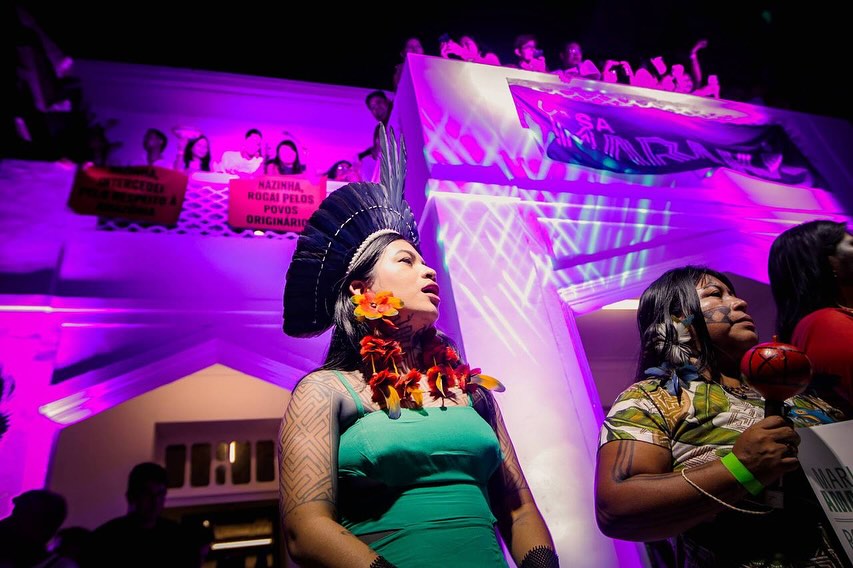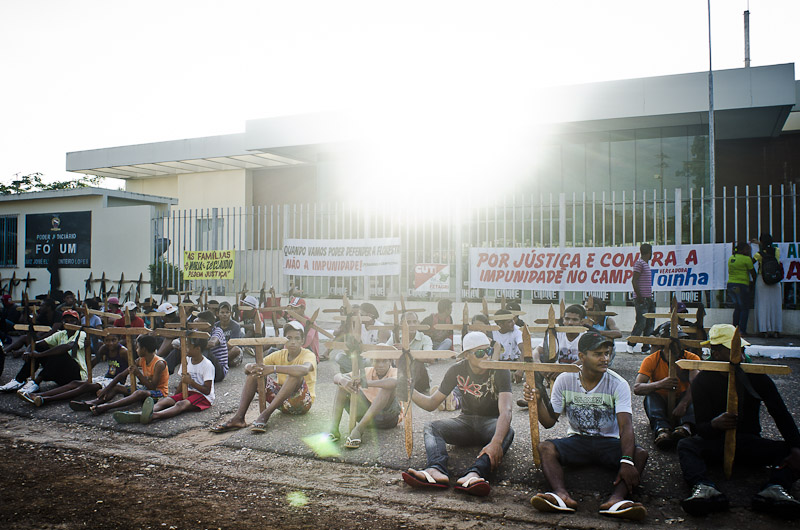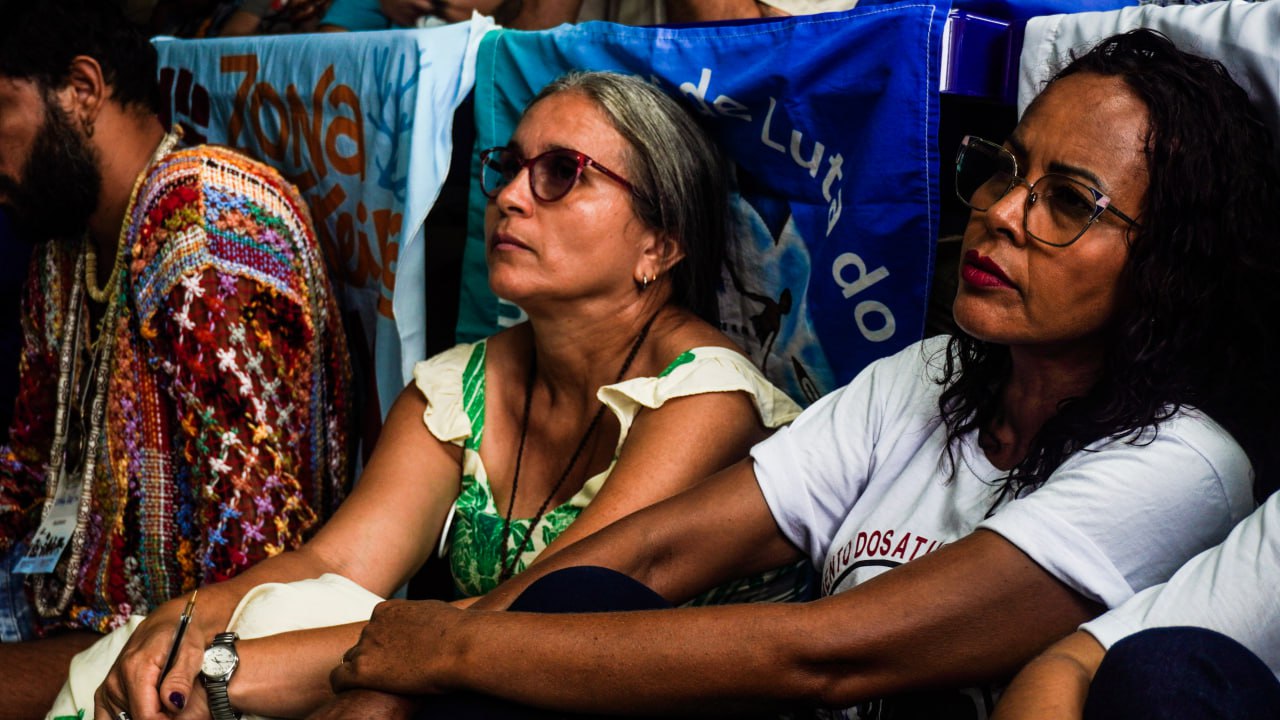
People’s Tribunal denounces injustice of climate transition in traditional territories
People’s Tribunal reveals impacts of energy transition on communities and questions development model
Evelyn Ludovina and Evelyn Neves, from the NINJA Collaborative Coverage at COP30
The climate transition, understood as the shift from an economy based on fossil fuels to one focused on low carbon, is more than a technological challenge: it is a process that demands social justice. Without considering who is disproportionately affected by climate change and the new energy projects, the transition risks reproducing historical inequalities and increasing vulnerabilities, especially among traditional peoples, rural communities, and populations already living on the margins of decision-making processes.
It is in this context that the Popular Tribunal for a Just Transition, held during the Peoples’ Summit at UFPA (Federal University of Pará), gains relevance. The space gathered female leaders to denounce not only specific violations but a pattern of socio-environmental impacts associated with both renewable energy ventures and mineral and industrial projects. The testimonies showed that, although the energy transition promises to be a sustainable alternative, its implementation has deepened conflicts in Indigenous, Quilombola, Caiçara territories, and in rural and coastal areas.
From the North to the Northeast, different communities have been facing the direct consequences of the advance of projects installed in the name of sustainable development. Three cases appear emblematically: metal contamination in the Recôncavo Baiano region, the effects of wind turbines on communities in Ceará, and the murder of two quebradeiras de coco babaçu (babassu coconut breakers) in Pará, an episode that exposes the worsening of land conflicts also associated with the pressure for new energy frontiers.
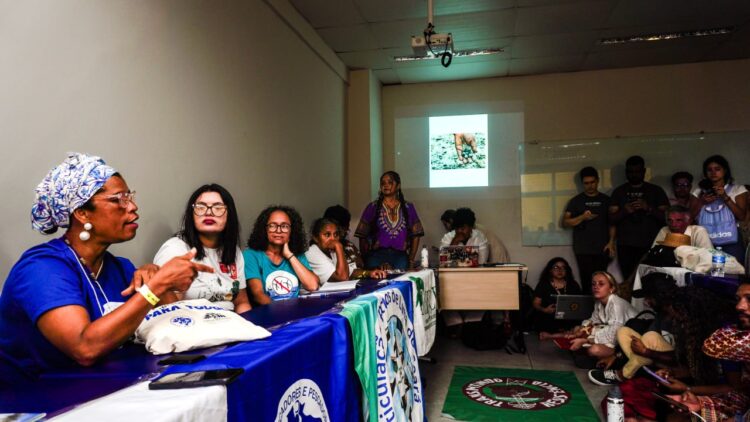
Regarding the Recôncavo Baiano, the complaint was presented by Claudia dos Santos, representative of the Cambuta de Santo Amaro Quilombola Community, of the Black Quilombola Association of Bahia. She reported that the mining company Plumbum remained in the region for more than three decades, leaving a trail of lead contamination that persists to this day. Polluted rivers, dead animals, and chronic diseases are part of the daily lives of the affected communities.
“Fishermen and shellfish gatherers are the most impacted,” states Claudia, highlighting that the reduction in aquatic fauna causes a drop in income and disrupts traditional modes of subsistence.
In Ceará, the EcoMaretório collective, represented by Alanna Loiola, a caiçara from Icaraí de Amontada (CE), a biologist and master’s student at UFC, presented a diagnosis that questions the image of wind energy as a green and risk-free solution.
“We conducted a human health diagnostic study […] in which the majority of the population sees the wind turbines from their residences, 88% see the towers from home, 64% hear the noise of the turbines all the time, 50% say the noise disrupts sleep, 75% feel sadness over the change in the landscape, 96% saw the territory as preserved and today 93% say it has changed a lot, 88% say that before the towers they were in good health and 91% reported well-being; today, 71% of the population feels a worsening of health and 36% have already sought a doctor after receiving diagnoses associated with anxiety and depression,” says Alanna.
The report highlights that the energy transition, when carried out without dialogue or territorial protection, generates silent and profound impacts.
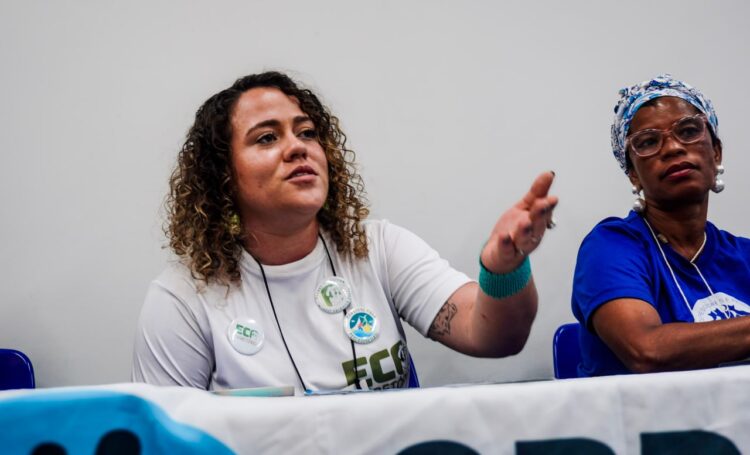
The third case brought to light the murder of Antônia Ferreira dos Santos and Marly Viana Barroso, two quebradeiras de coco babaçu killed in the municipality of Novo Repartimento (PA) days before the Summit. The denunciation was made by Maria de Sousa, coordinator of the Pará regional branch of the Interstate Movement of Babassu Coconut Breakers (MIQCB), who demanded justice and warned of the advance of conflicts involving the destruction of babassu groves and the actions of farmers. She reinforced that the “Lei do Babaçu Livre” (Free Babassu Law), the movement’s main demand, only exists at the municipal level in Pará, in São Domingos do Araguaia, leaving thousands of women exposed to violence and the loss of their territories.
Just transition: climate agenda impasse
By listening to different voices and experiences, the Popular Tribunal for a Just Transition exposed a central contradiction in the climate agenda: while global policies defend the urgency of replacing fossil fuels, many of the proposed alternatives continue to reproduce historical inequalities.
“What everyone here is facing is a discussion about the development model. These are not isolated issues, and in that sense, perhaps they are so difficult precisely because of that. Because we have a hegemonic perspective. […] What the traditional peoples and communities, especially those present at the tribunal, are telling us is that there is another way,” affirmed Tricia Calmom, Superintendent of Support and Defense for Human Rights in the Bahia state government.
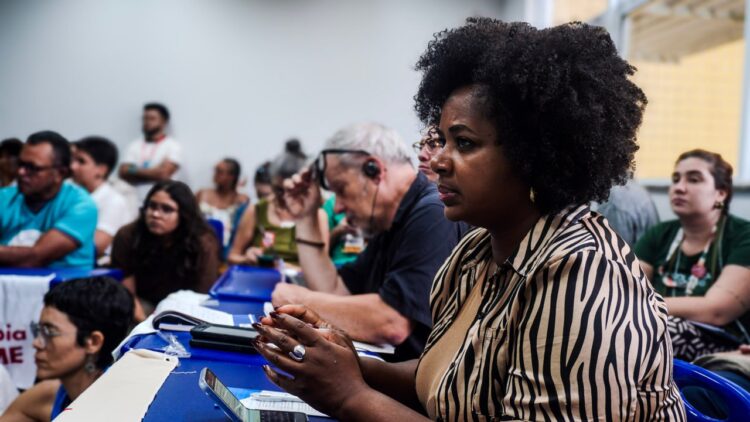
The climate transition, therefore, cannot be measured only by installed megawatts or compensated tons of carbon. It depends on the recognition that climate justice necessarily requires territorial justice and that no process will be truly sustainable if it continues to sacrifice the same populations that historically sustain ways of life most aligned with the preservation of ecosystems.

